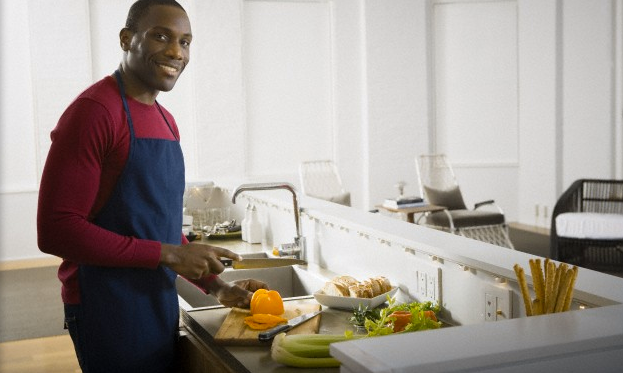
Most of the exercise and dieting I engaged in deepened and assuaged my fears. I was scared of life, so I went about trying to find safety thru control and denial. I meal-prepped, watched my ingredient lists, engaged in rigorous exercise, monitored my sleep patterns, and isolated myself from non-exercise related social functions. But on the other hand, I was eating better, my body was getting stronger, and I was attracting better looking people into life. All this translated into a loving practice, so I thought, yet I was never satisfied with myself, always striving and searching for another fix — something, anything to keep up the appearance of health.
One the best tools to help peel back the layers of fear blocking us from optimal health is honesty. But I get it, “honesty” sounds so esoteric. I mean, where and how could I have had cultivated honesty when I was mired in denial? Well, I looked towards an infinite source of truth: the moment. “The moment” sounds abstract and spacey, but because it’s fundamentally all we have, it’s really grounded in reality. As I became more aware of the moment, there were three points of emphasis that helped me maintain an honest approach to my health:
1 Living in the Moment
For me, living in the moment always evokes visions of desert raves in the middle of the Mohave. But although it took illicit drugs for me to take hold of the moment, I finally experienced where life resided: the moment. Now, in my sober mind’s attempt to consume the moment, I have to trust the moment, or in other terms, trust life.
Life teaches me that my health depends my ability to trust in the power love. A loving practice is the key to regaining our vitality. In his easily digestible tome Biology of Belief, cellular biologist Bruce Lipton suggests “that we are spiritual beings who need love as much as we need food.” This statement doesn’t encourage us to go out and eat fast-food everyday, but it does urge us not to eat food from a place of restriction or shame. Cakes, pies, doughnuts, and all sorts “diet-killing” foods don’t have to be saved for a “cheat-day” or consumed in secret. Being honest with yourself will honor the food’s producers, enriching the context of your interactions with people, and maybe even allowing cake and ale to help strengthen a bond thru loving communion.
2. Creating an Honest, Healthy Environment.
After I became comfortable in the moment, I went about the business of creating a healthy environment. If we allow consumer culture to dictate what a healthy environment looks like, we’d likely see tons of products and gimmicks. But that is to say, there is nothing inherently wrong with having a Bowflex Revolution Home Gym or a seven-day detox kit. Building a healthy environment, however, asks of us to go beyond the aesthetically pleasing results of most home workout DVDs or cleansing kits and move into the deep healing that materializes when we commune with the environment around us. Whether it’s going to a yoga class or serving at a local charity or community garden, when we add others who respect us and our wellness journey, we lose the narcissistic urge to worship isolation, secrecy, and domination.
According to psychologist Dr. Stuart Brown, one of the best ways we can invite others into our healthy domains is by engaging in play. Brown has dedicated his work to understanding the strong health benefits of playful activities. In a recent companion interview for his interesting book Play, Brown reinforces the belief that playful communion helps adults deal with common maladies: “The play-less adult becomes stereotyped, inflexible, humorless, lives without irony, loses the capacity for optimism, and generally is quicker to react to stress with violence or depression than the adult whose play life persists.” When our stated intention is to become more healthy, rarely is it accomplished in isolation, yet our culture continues to push individualistic exercise and diets regimens, creating a longing for community interaction..
3. Listen to Your Body’s Signals, Openly and Honestly
Sometimes, when we lack a community of acceptance, care, knowledge, and responsibility, we’ll have the tendency to gravitate towards dysfunctional communities that may have one of the elements of love but lack the full accompaniment for healing to take place. In those communities, we may lose the ability to respond mindfully to our body’s signals in order to maintain the consistency with the group.
One of the hardest words to express honestly is “no.” No usually carries a negative connotation, but there is a growing body of research that suggests that cultivating the courage to say “no” can have huge health benefits. target. In When the Body Says No, physician Gabor Mate infers that true health derives from an honest assessment of oneself, the ability of one to assert her truth: “Since the immune confusion that leads to disease reflects a failure to distinguish self from non-self, healing has to involve establishing or reclaiming the boundaries of an autonomous self.”
To assert our goal to become healthy, we have to be honest in the admission of our woundedness. Listening to our body’s signals is the first step in accessing the damage. This is the foundation on which salvation can take place. But again, considering that we rise and fall everyday in very practical terms, salvation doesn’t have to be only thought of in religious terms. When we seek lasting health, we listen and look to our bodies first to bear witness to our lapses. By allowing our bodies the space to speak, we surrender to love, knowing that our health depends on the power and grace of love in order to accept the true nature of human health: to maintain the ability to serve.




Awesome. Love it.